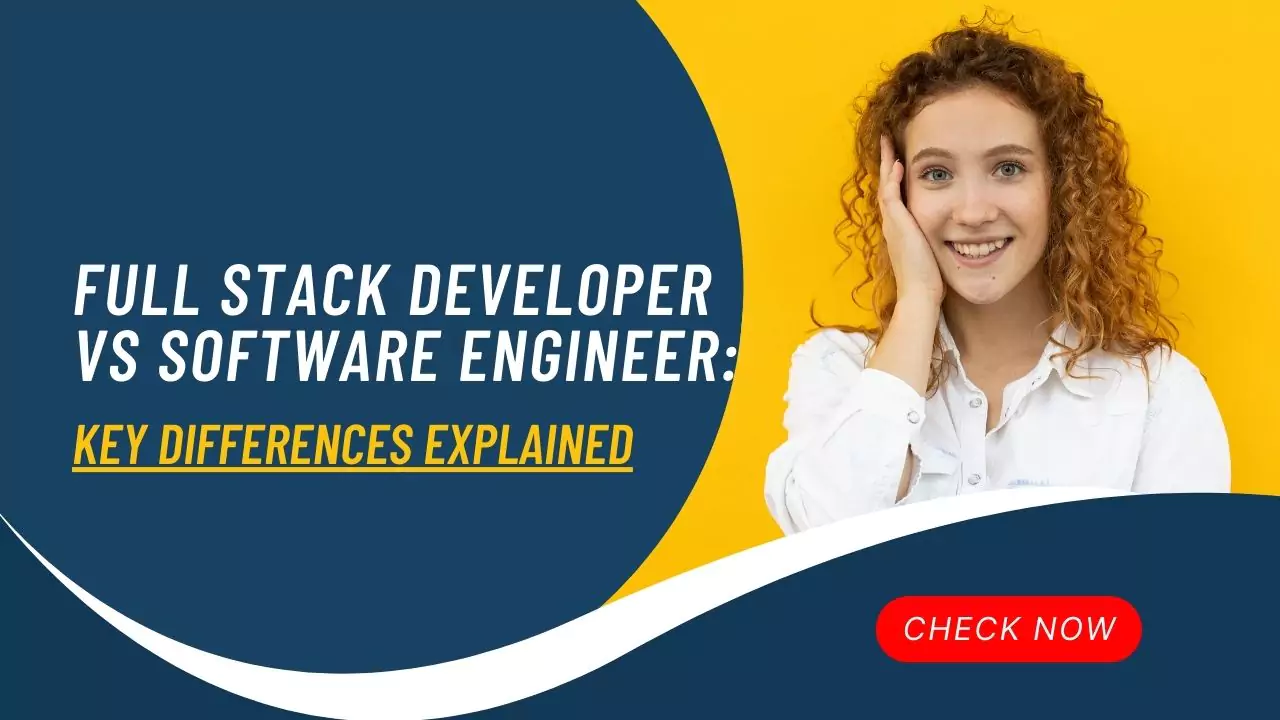When choosing a career in technology, two roles that often come up are Full Stack Developer and Software Engineer. While both are highly sought after, they have distinct responsibilities, career paths, and growth opportunities. This blog will break down the key differences, tools and technologies, and career trajectories to help you make an informed decision.
What Does a Full Stack Developer Do?
A Full Stack Developer is involved in both the front-end and back-end aspects of web development. They handle everything from designing user interfaces to managing databases and server configurations.
Responsibilities of Full Stack Developers
- Front-End Development: Working on the user interface using HTML, CSS, and JavaScript frameworks like React and Angular.
- Back-End Development: Managing databases, server-side scripting, and API integrations using technologies like Node.js, Django, and Ruby on Rails.
- Full Project Ownership: Full Stack Developers often handle projects from concept to deployment, making them versatile team members.
Key Technologies Used by Full Stack Developers
- Programming Languages: JavaScript, Python, Ruby, PHP
- Frameworks: React, Angular, Vue.js for front-end; Node.js, Django for back-end.
- Version Control: Git and GitHub for managing code.
Career Path and Growth Opportunities for Full Stack Developers
Starting as a front-end or back-end developer, Full Stack Developers quickly move into mid-level roles, specializing in areas like cloud computing or mobile development. Senior developers often become Tech Leads or Solutions Architects, overseeing technology stacks and guiding development teams.

What Does a Software Engineer Do?
A Software Engineer focuses on system design, creating efficient algorithms, and working closely with other technical teams. Unlike Full Stack Developers, Software Engineers often specialize in one phase of the software development life cycle.
Responsibilities of Software Engineers
- System Design: Creating scalable and efficient systems, whether for web apps, mobile applications, or embedded systems.
- Collaboration: Working with product managers, designers, and QA teams to ensure software meets functional and performance standards.
Key Technologies Used by Software Engineers
- Programming Languages: C++, Java, Python
- Tools: Lucidchart for system design, JProfiler for performance analysis.
Career Path and Growth Opportunities for Software Engineers
Starting as a Junior Software Engineer, professionals in this field can advance to roles like Senior Engineer, Principal Engineer, or even Engineering Manager. Specialized areas like machine learning, cloud computing, and cybersecurity offer advanced opportunities for growth.

Full Stack Developer vs Software Engineer: Key Differences
Scope of Work
- Full Stack Developers work across the entire tech stack—front-end, back-end, and everything in between.
- Software Engineers tend to specialize, focusing on specific areas like system design, performance optimization, or back-end development.
Tools and Technologies Comparison
| Role | Front-End Tools | Back-End Tools | System Design Tools |
|---|---|---|---|
| Full Stack Developer | React, Angular, Vue.js | Node.js, Django, Ruby on Rails | Git, GitHub, Docker |
| Software Engineer | N/A | Python, Java, C++ | Lucidchart, JProfiler |
Salary Comparison
Both roles offer competitive salaries, but specific averages vary by region. For example, Full Stack Developers in India earn an average of ₹12-18 LPA, while Software Engineers earn slightly higher at ₹15-22 LPA in cities like Bangalore
How to Choose Between Becoming a Full Stack Developer or Software Engineer
Career Aspirations
- Choose Full Stack Development if you enjoy working on both front-end and back-end technologies and prefer a versatile role that touches on all aspects of web development.
- Opt for Software Engineering if you’re passionate about problem-solving, system architecture, or want to specialize in areas like AI or cloud computing.
Key Skills Required for Each Role
- Full Stack Developer: Versatility in multiple programming languages, frameworks, and API integrations.
- Software Engineer: Strong problem-solving skills, deep understanding of algorithms, and system design.
Frequently Asked Questions (FAQs)
What is the primary difference between a Software Engineer and a Full Stack Developer?
The main difference lies in their scope. Full Stack Developers handle both front-end and back-end development, while Software Engineers focus on specific areas like system architecture or performance optimization.
Which role is better for career growth?
Both roles offer great opportunities. Full Stack Developers tend to move into tech lead roles, while Software Engineers may progress to senior technical positions, focusing on innovation and system performance.
Is the salary for Full Stack Developers higher than Software Engineers?
On average, Software Engineers tend to earn slightly more than Full Stack Developers, especially in specialized fields like cloud computing and AI.
Conclusion
Choosing between a career as a Full Stack Developer or a Software Engineer depends on your interests and long-term goals. If you prefer versatility and enjoy working across multiple technologies, Full Stack Development is the way to go. However, if you are passionate about deep technical problem-solving and system design, Software Engineering might be your best bet.
For more information on career development, check out our Full Stack Development Course or explore our resources on Software Engineering to kickstart your journey in tech.






